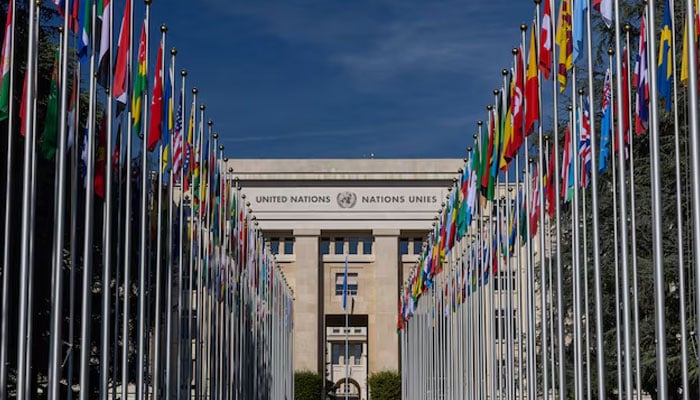Voice of multipolarity
Global South comprises the majority of world's population, vast reserves of natural resources, and growing markets
August 06, 2025

As the world continues to navigate the complexities of an evolving global order, the voice of the Global South becomes louder. Common aspirations of countries from the developing world and emerging economies are peace, development, fairness, justice and connectivity.
The Global South has now replaced expressions such as "North-South divide", "long neglected Southern hemisphere" and "non-Western world".
Developing countries and struggling economies in Asia, Africa and Latin America faced challenges like different forms of hegemony, poverty, political instability and weaker global influence, but now they aspire for a fair and rules-based international system that lays emphasis on shared challenges rather than ideological alignments.
The Global South comprises the majority of the world’s population, vast reserves of natural resources, and growing markets. The IMF 2024 report suggests that the Global South is contributing 42% of the global GDP, and its inflows of FDI account for 65%.
From 2014-2024, the Global South has shown an average growth of 4.1% and by 2030, three out of the four largest economies of the world will be from the developing world. So, Global South symbolises a collective effort to promote fairness, justice, cooperation and inclusive development.
The Global South, however, is not a monolith; it comprises nations with varying interests, ideologies and political or strategic priorities. There is both a convergence and divergence of opinion on issues, such as international conflicts, climate change, economic justice, global trade and diverse cultures.
Collectively, the Global South looks up to China for leadership, since China has steered the cause of South-South cooperation and has emerged as a natural leader of the Global South. China has been identifying itself with the developing world to boost the agency of the Global South. In the wake of geopolitical competition between China and the US, the relations between China and the Global South have deepened.
China has initiated the restructuring of global financial institutions to make development finance more accessible to developing countries. It has also expanded its collaborative platforms for AI, 5G and big data and scales up initiatives such as the South-South Cooperation Assistance Fund to build human capital in disaster management and digital literacy.
China is also deepening multilateralism by focusing on sustainable development and underscoring its commitment to enhancing South-South cooperation through forums such as the SCO and BRICS.
Middle powers in the Global South, such as Brazil, South Africa, Indonesia, Turkey, Azerbaijan, Pakistan and others have a critical role in shaping global politics, economics, and development cooperation. Middle powers act as a bridge between developed and developing worlds, promoting South-South cooperation, reforms in global institutions, climate diplomacy and sustainable development.
Middle powers in the Global South could serve as stabilisers and agenda-setters in global affairs. With regional leadership and multilateral engagement, Middle Powers are redefining the role of developing nations in a multipolar world. Pakistan has long been an advocate for Global South solidarity, peace and sustainable development.
The Global South is no longer a periphery of global affairs; it is increasingly becoming the centre. The voice of the Global South is the voice of multipolarity, inclusivity and a fair international system. With its growing populations, rich natural resources, and rising middle powers, the Global South has the potential to play an assertive role in shaping global governance and economic development.
Greater cooperation among Global South countries should embrace inclusivity and shared prosperity. Ultimately, the Global South's future hinges on its capacity to leverage its strengths and exert collective influence on the global stage, where every country, regardless of its economic or military prowess and strategic priorities, should have a seat at the table.
Disclaimer: The viewpoints expressed in this piece are the writer's own and don't necessarily reflect Geo.tv's editorial policy.
The writer is the director of the China-Pakistan Study Centre at the Institute of Strategic Studies Islamabad.
Originally published in The News











